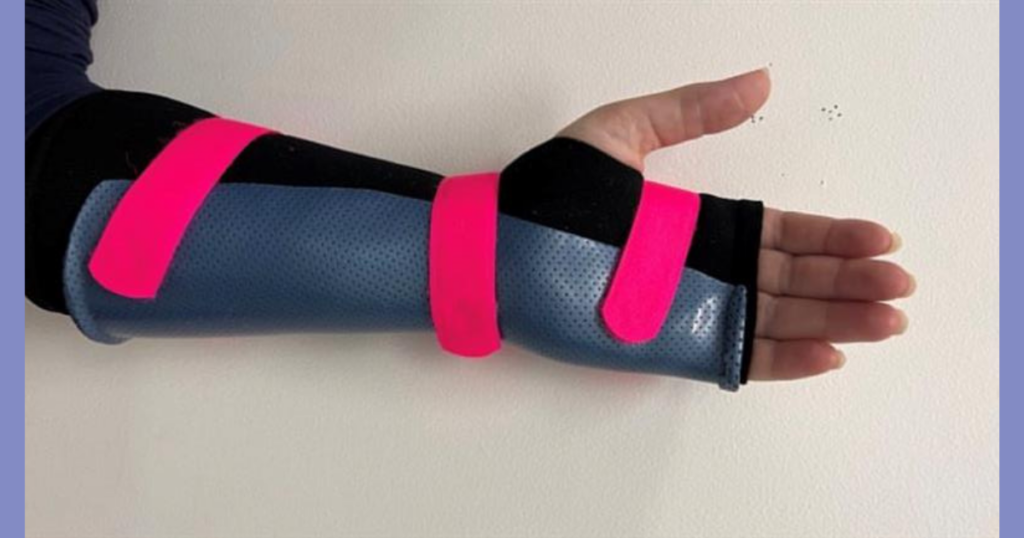Every year in Australia, a significant number of workplace injuries impact the hands leading to diminished productivity and causing both physical and emotional distress. Hand therapy assumes an important role in addressing these injuries and facilitating the recovery process.
When our ability to grip, pinch, and manipulate objects is hindered by a hand injury or condition, it’s easy to realise the significance of these seemingly mundane actions. This is precisely where hand therapy and the expertise of a Hand Therapist come into play, offering valuable benefits and support during an individual’s recovery journey.
The annual Hand Therapy Awareness Week is coming up from 5 June to 11 June. This year’s theme is focused on Workplace Injuries, highlighting the prevalence of finger and hand injuries as one of the most common types of work-related injuries in Australia.
Understanding hand therapy

Hand Therapists possess specialised knowledge in hand conditions, offering invaluable expertise and skills. They tailor rehabilitation programs to address specific injuries, utilising their comprehensive understanding of hand anatomy and functionality. They are also skilled in creating custom splints, which play a crucial role in supporting and protecting injured hands during the healing process.
Beyond the technical, Hand Therapists serve as compassionate allies to clients, recognising the physical and emotional challenges individuals face due to hand injuries. They offer guidance, encouragement, and empathy, empowering clients throughout their recovery journey.
Hand Therapy Awareness Week

Hand Therapy Awareness Week plays a key role in raising awareness about the importance of hand therapy. It shines a spotlight on early intervention, education, and preventive measures for hand-related injuries and conditions. This special week brings together the public, healthcare professionals, and policy makers, increasing the overall understanding and awareness for hand therapy. The week serves as a platform for advocacy, research, and community engagement, highlighting the invaluable role of hand therapy in restoring independence and overall wellbeing.
Common workplace hand injuries

At the Hand Clinic, our Hand Therapists see many different hand injuries that are caused in the workplace, including tendon and nerve lacerations, finger dislocations, and fractures in the wrist, thumb, and fingers. However, among our clients, the most prevalent hand and upper limb injuries arising from workplace environments are often associated with repetitive motion. This category includes conditions like carpal tunnel syndrome and repetitive strain injuries.
Repetitive injuries affecting the soft tissues and joints in the hand commonly stem from factors such as inadequate ergonomics or the need for prolonged repetitive movements. These issues are frequently observed in various workplace settings, including those involving keyboard users, drivers, and particularly individuals working in the manufacturing industry.
In instances where clients sustain traumatic workplace injuries, the severity often requires surgical intervention. In such cases, our Hand Therapists play a crucial role by providing early intervention with custom splints that safeguard the healing structures. Additionally, they offer essential wound care and exercise to support the recovery process.
How we treat workplace hand injuries

At the Hand Clinic, our Hand Therapists utilise a diverse range of treatment techniques tailored to address several types of hand injuries. Each client receives a customised treatment strategy and rehabilitation program based on their specific needs.
In cases involving injured ligaments and joints, we craft thermoplastic splints, uniquely designed to provide optimal support and protection. Alternatively, we can also select suitable off-the-shelf splints that align with the client’s specific requirements. Our goal is to deliver individualised care and employ the most appropriate interventions to promote effective healing and recovery for every client.
We also employ an effective exercise known as isometric strengthening for clients with hand injuries. Isometric strengthening entails engaging and tightening the muscles without moving the wrist joint itself. By utilising this technique, we aim to enhance stability and promote the overall strength and function of the hand.
Tips to prevent workplace hand injuries
While you can’t always completely avoid injuries, there are some things you can do to help navigate the risks of gaining a hand injury in the workplace.
- Maintain focus while performing job tasks, particularly when operating heavy machinery, and pay attention to lifting capacity limitations.
- If you experience fatigue, take breaks and avoid pushing your hands and wrists beyond their limits.
- For those working in office environments, we highly recommend a professional ergonomic assessment to help identify the correct ergonomic equipment for an individual to minimise stress and strain on the hands, thumbs, and wrists.
- If your Hand Therapist has recommended specific splints, make sure to wear them as instructed. This will provide necessary rest for your joints, cartilage, and ligaments, aiding in healing and preventing additional strain.
If you have suffered from a workplace hand injury, or would like to access our hand therapy services, you can book an appointment at our Hand Clinic with appointments at Barton and Mawson.